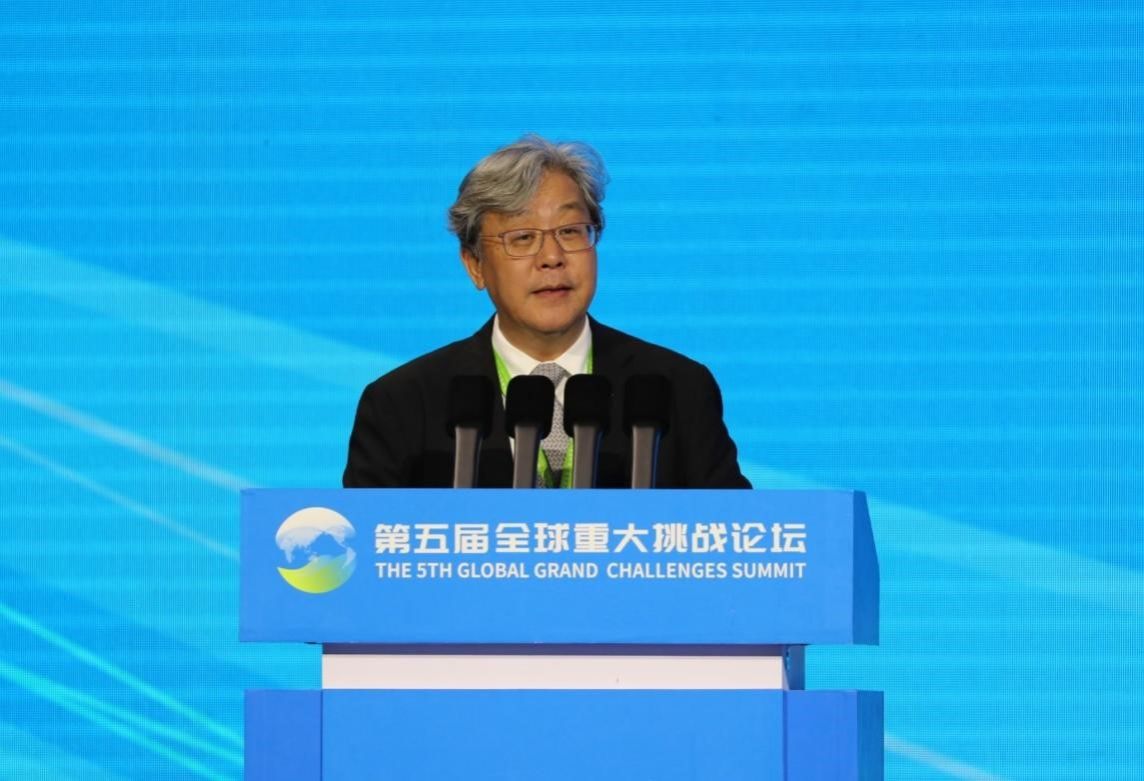
Following the opening ceremony, Session 1 of the Summit, themed on: "Sustainable Infrastructure" got started, moderated by Wu Zhiqiang, CAE Member and a professor at Tongji University.
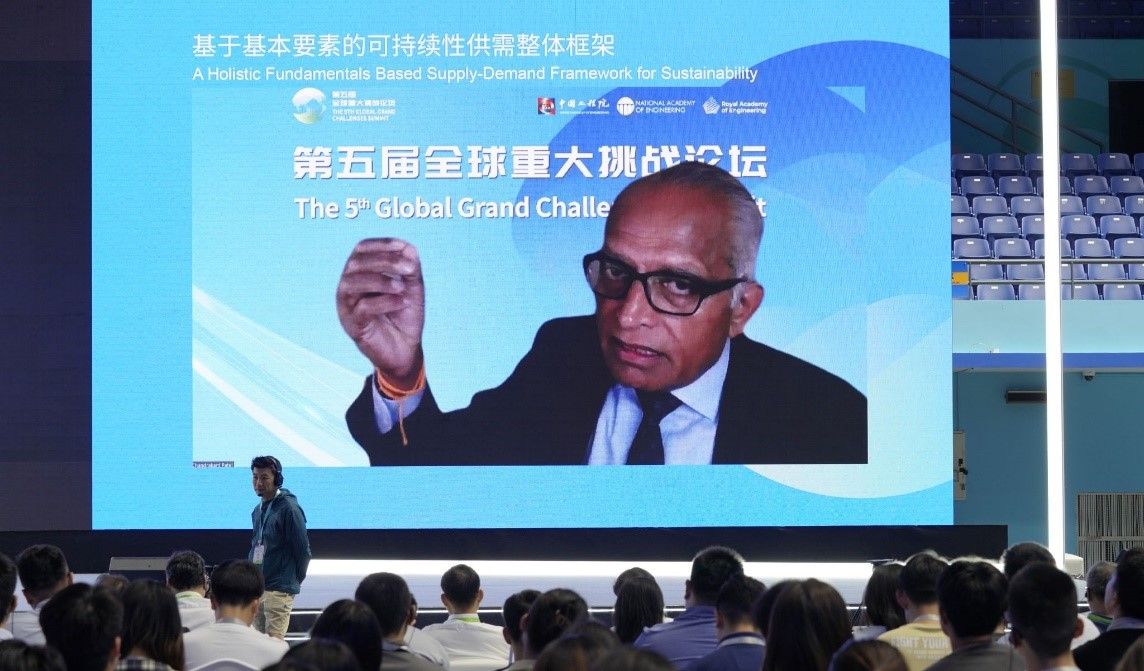
Chandrakant Patel, NAE Member; Senior Fellow and Chief Engineer at HP Inc, delivered a keynote on "A Holistic Fundamentals Based Supply-Demand Framework for Sustainability". He provided an overview of the research on building sustainable cyber-physical infrastructures, covering four key aspects. These included the challenges faced in both supply and demand sides when constructing such infrastructures, the importance of considering current trends in addressing grand challenges and designing feasible strategies, the framework necessary for sustainable cities, and the expertise and know-how required to develop sustainable infrastructure.
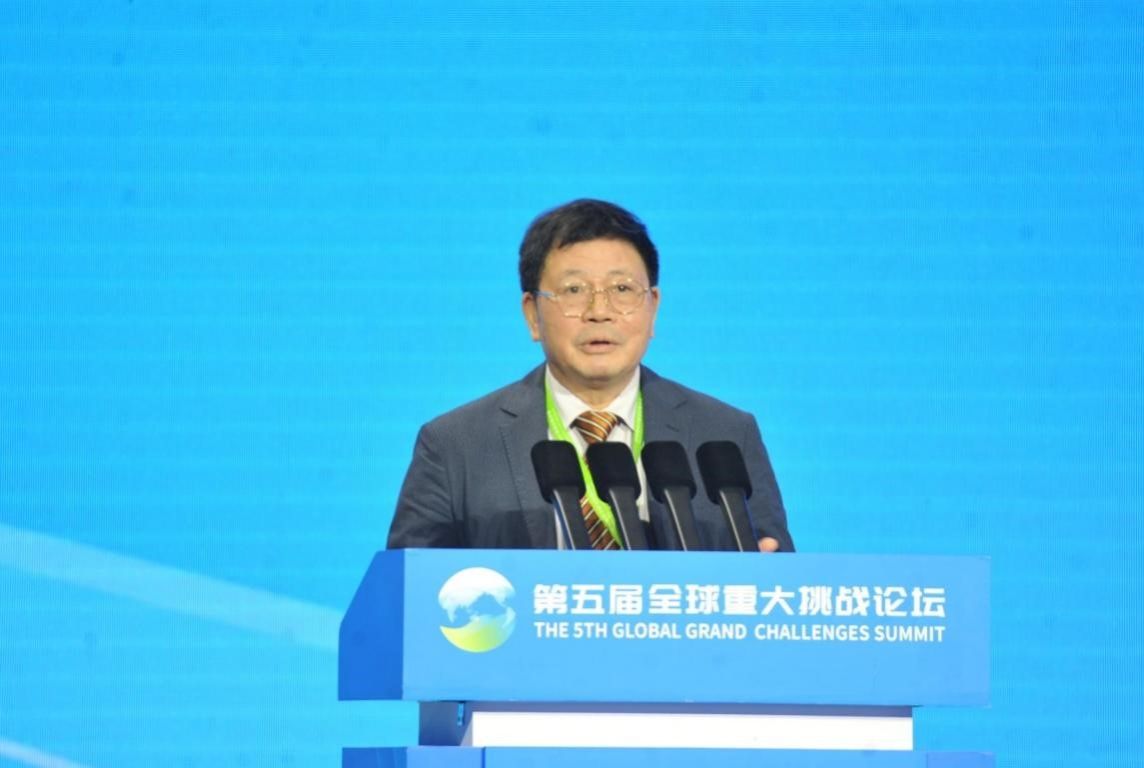
Ou Jinping, CAE Member and Professor at Harbin Institute of Technology, delivered a keynote on "Urban Catastrophe Resilience and Smart Disaster Prevention and Mitigation". He explained that the idea of urban resilience has gained recognition among engineers and scientists due to the significant impact of major disasters and the intricate interplay between complex engineering systems and social systems. Enhanced urban resilience means improved ability to withstand disasters and less damage caused by them. It also enables the swift restoration of urban operational systems through resource integration and the utilization of innovative technologies. Ultimately, this paves the way for smart disaster prevention and mitigation in cities.
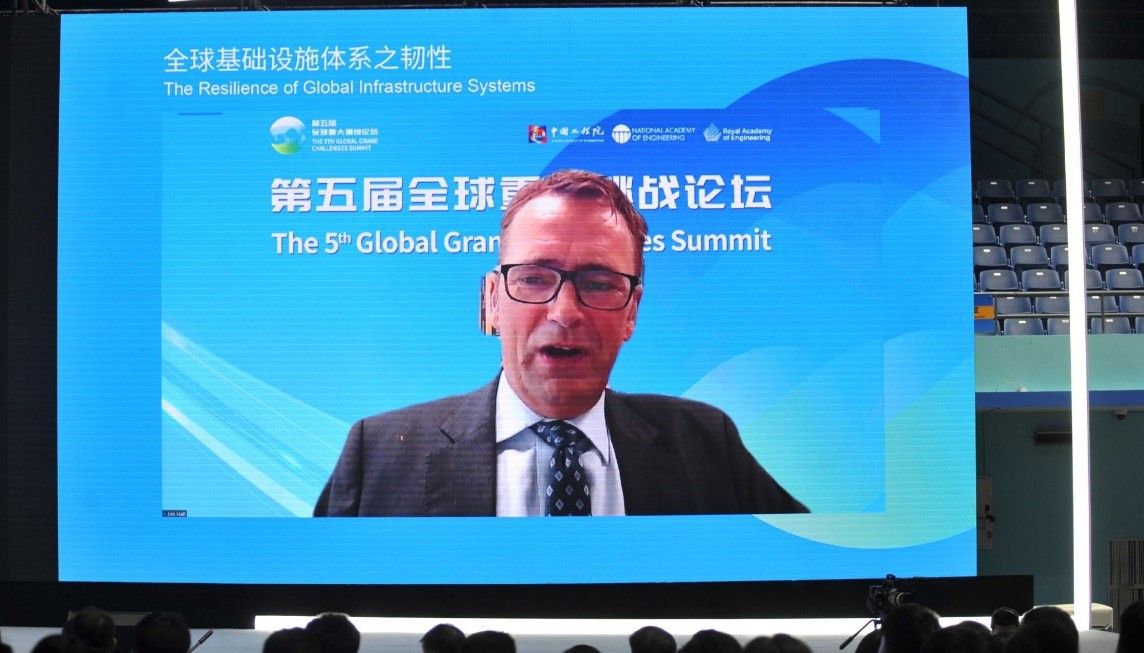
Jim Hall, RAEng Fellow and Professor at University of Oxford, delivered a keynote on "The Resilience of Global Infrastructure Systems". He introduced how his research team conducts spatial analysis of global climate using publicly available data. By identifying areas of vulnerability, they have driven scientific planning and fostered global cooperation, ultimately improving the research on the resilience of global infrastructure. Through careful logical reasoning, he provided a comprehensive answer to the crucial question of "how to effectively utilize large-scale global analysis to tackle global risks".
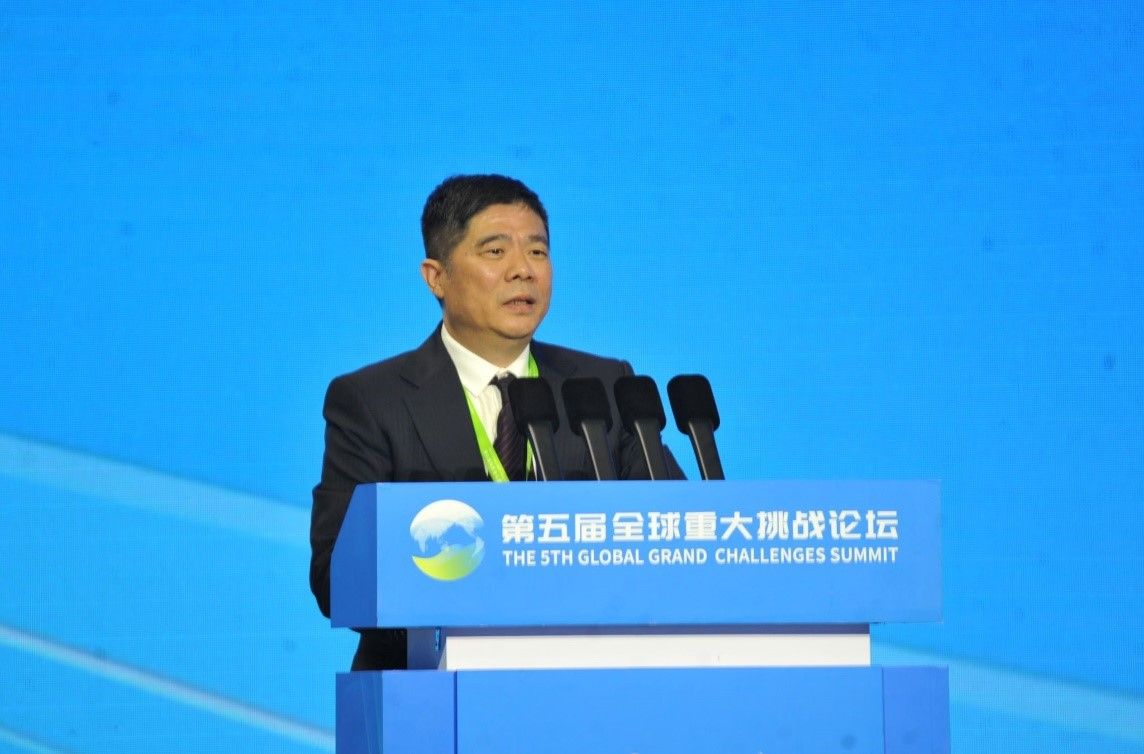
Du Xiuli, CAE Member and Professor at Beijing University of Technology, delivered a keynote on "New Challenges for Construction, Operation, and Maintenance of Infrastructure". He elaborated on the achievements of China in infrastructure construction since 1949. He discussed the resource consumption and environmental issues arising from large-scale infrastructure development, as well as the safety risks and disaster resilience of infrastructure that have entered the maintenance stage. Moreover, he highlighted China's proactive efforts in leveraging technological innovations to address various challenges in infrastructure construction and operation.

Anne Kiremidjian, NAE Member & Professor at Stanford University, delivered a keynote on "Sustainable, Smart, and Resilient Infrastructure". She provided examples of post-disaster reconstruction and medical assistance, such as the floods in Algeria, the Great Hanshin earthquake in Japan, and the Lima earthquake in Peru. These examples emphasized the importance of integrating intelligent disaster response elements. She also detailed the pathways and methods to achieve sustainable development of smart and resilient infrastructure.
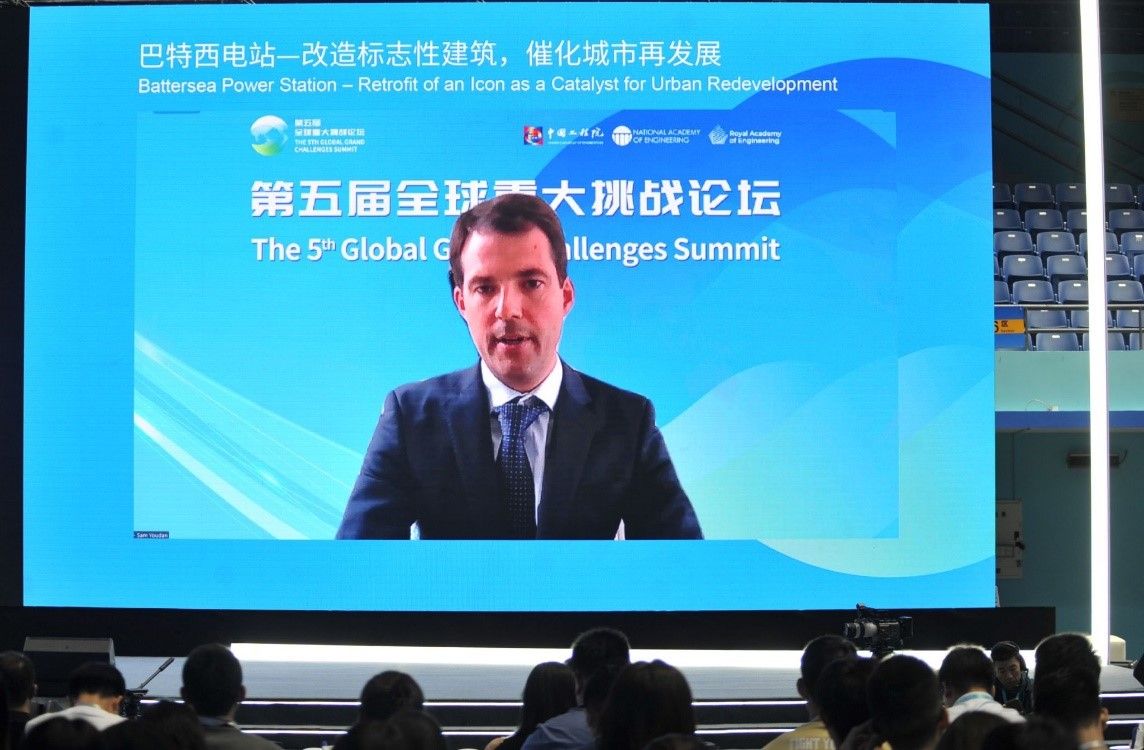
Sam Youdan, Director of Buro Happold and Fellow of the Institution of Civil Engineers, delivered a keynote on "Battersea Power Station – Retrofit of an Icon as a Catalyst for Urban Redevelopment". By presenting the transformation of the Battersea Power Station redevelopment project, he delved into the station's storied past as well as its condition prior to refurbishment. He elucidated the strategic approach to devising the station renovation and the remarkable outcomes attained post-revamp. With its public debut in October 2022, as he underscored, the project has played an influential role in London's urban renewal and sustainable development.
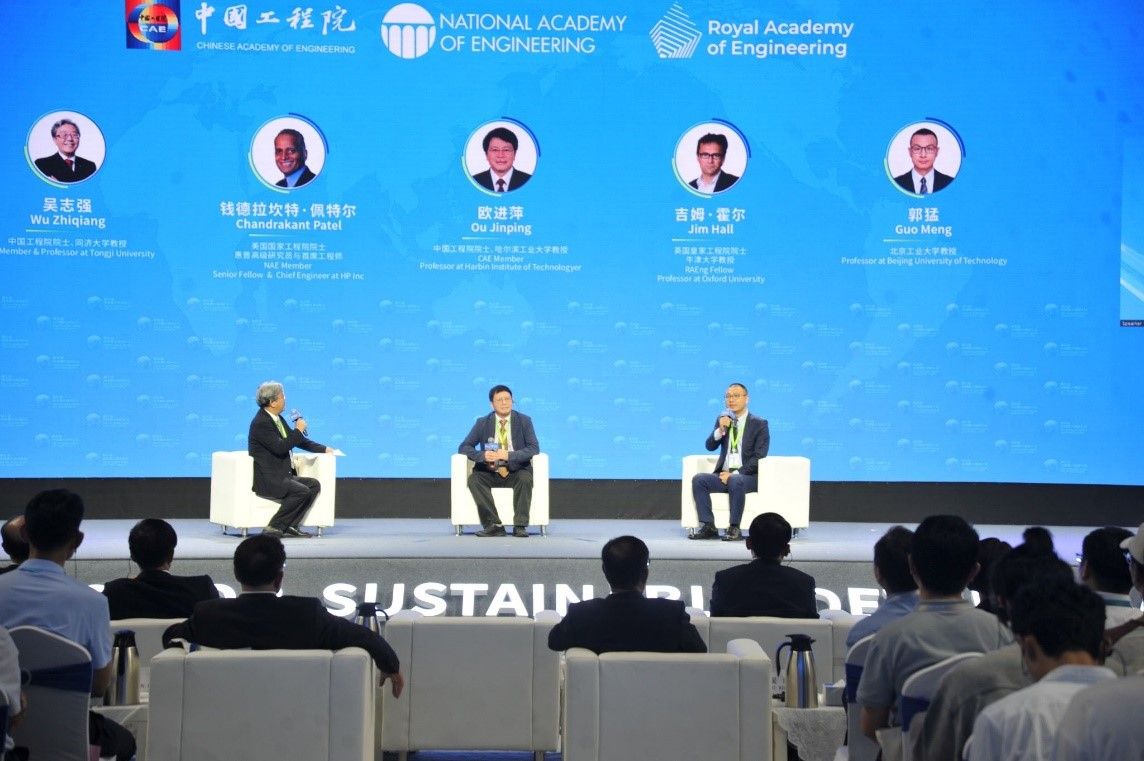
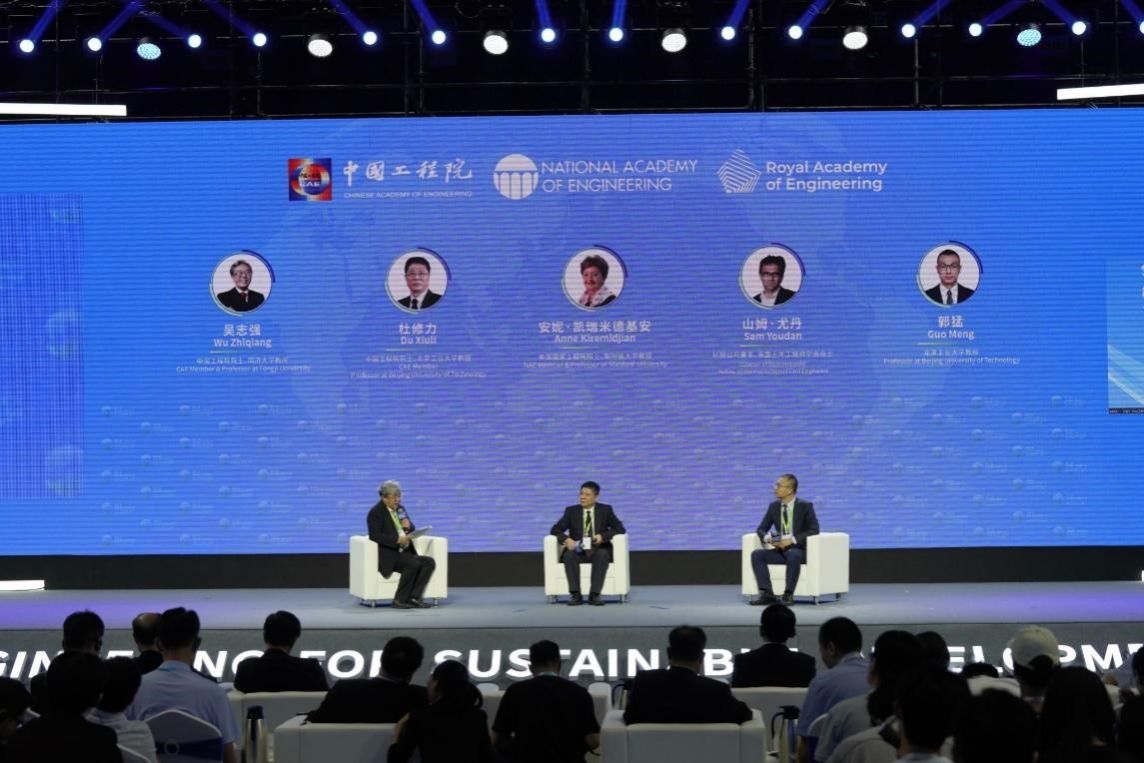
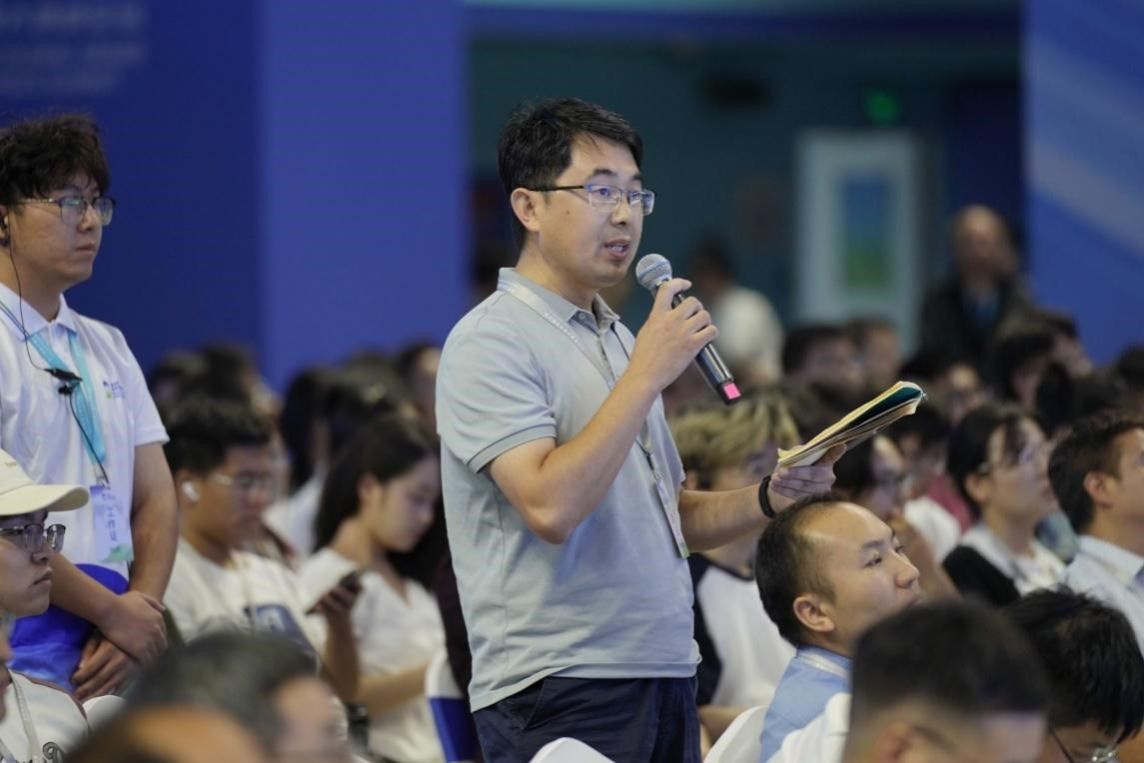
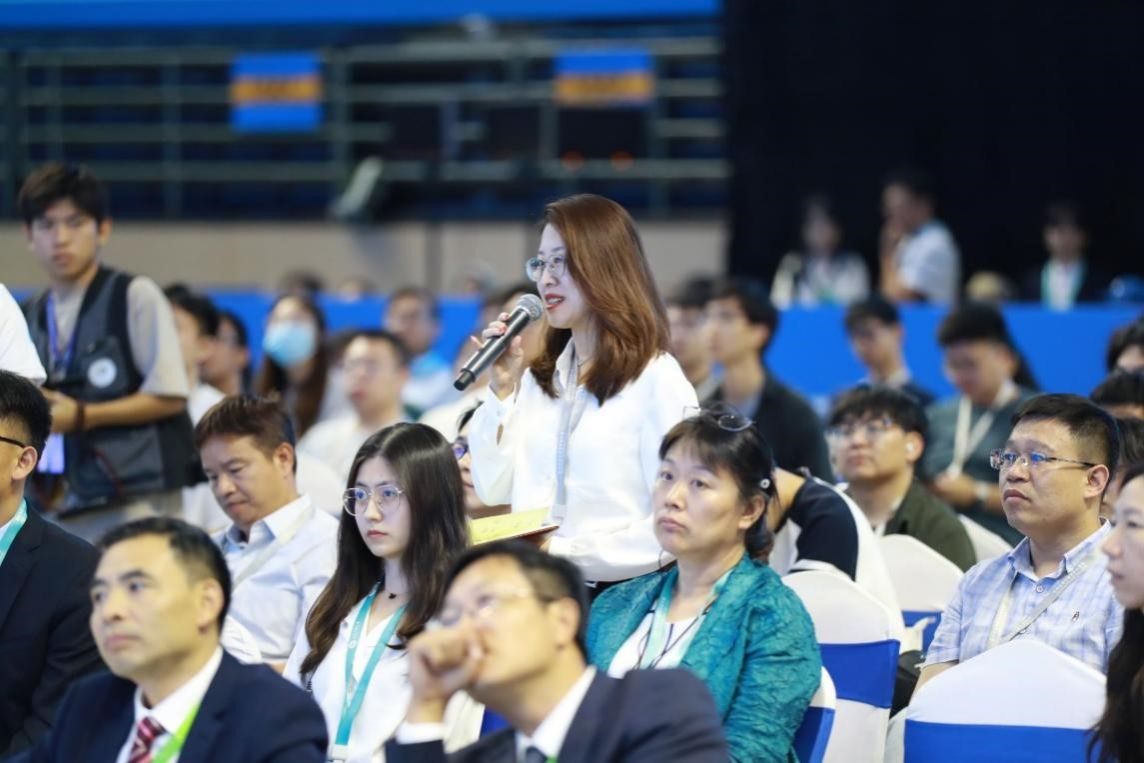
During panel discussions, the six speakers, joined by Prof. Guo Meng from the BJUT Faculty of Architecture, Civil and Transportation Engineering, who represented Chinese young scholars, actively interacted with participants, both online and offline, engaging in fruitful discussions on the topic of "Sustainable Infrastructure". They shared valuable insights and exchanged innovative ideas, bringing a successful end to Session 1. On the evenings of September 19thand 20th, Members and Fellows from three countries continued their discussions on the topics of "Engineering the Transition to Carbon Neutrality" and "Engineering Approaches to Digital Economy".







